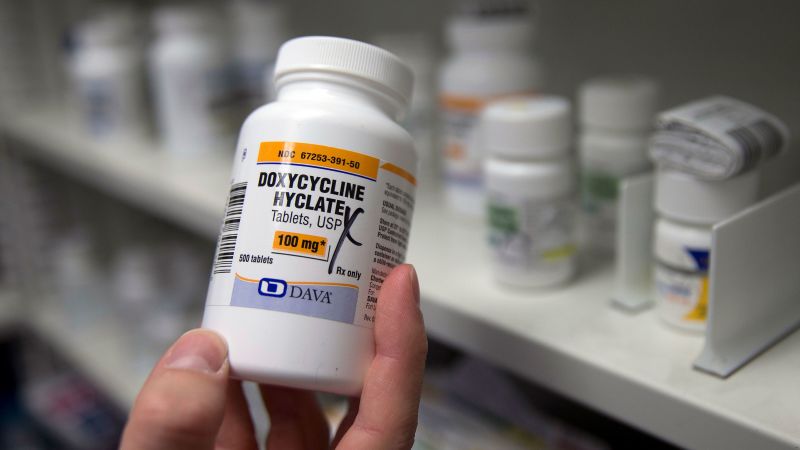Infection
CDC draft recommends certain people use antibiotic pill after sex to prevent the spread of STIs
CNN
—
Health care providers should consider prescribing a commonly used antibiotic to certain people as a way to prevent chlamydia, gonorrhea and syphilis infections, according to a draft recommendation posted online by the US Centers for Disease Control and Prevention on Monday.
“The purpose of the proposed guidelines is to provide updated clinical guidance for healthcare providers to inform the use of doxycycline PEP for preventing bacterial STI infections,” according to the posted document.
The proposed guidelines for the method, called doxyPEP, apply only to men who have sex with men, and transgender women. The CDC is seeking public comment on the proposal from interested persons and organizations now until November 16.
Dr. Jonathan Mermin, director of CDC’s National Center for HIV, Viral Hepatitis, STD, and TB Prevention, previously said in an email to CNN that the agency would seek public comment because it “allows us to gather important input before finalizing guidance, and gives clinical providers, people affected by STIs, and partner organizations the opportunity to weigh in before our guidance is finalized.”
The agency did not say when final guidelines are expected.
Doxycycline is a class of medications typically used to treat bacterial STIs after someone has been infected — a method called post-exposure prophylaxis. However, recent research suggests that one 200mg dose of the drug also may be effective in preventing such infections among men who have sex with men if taken within 72 hours after unprotected sex.
Until the CDC issues formal guidance on the use of doxycycline, doxyPEP will remain available as an off-label prescription when used for STI prevention. The US Food and Drug Administration has not officially approved the medication for STI post-exposure prophylaxis.
The CDC issued its draft proposal as the rate of sexually transmitted infections rises across the United States with more than 2.5 million cases reported in 2021, a jump of 7% in one year, according to data released in April by the CDC.
“The number of syphilis cases in the United States are at their highest level in over 50 years. The nation needs new tools to prevent STIs,” Mermin said in August.
Chlamydia accounted for more than half of those cases, with rates increasing about 4% in 2021. Cases of gonorrhea rose nearly 5%. Cases of syphilis surged 32% in one year, including an alarming rise in infections passed from pregnant mothers to babies developing in the womb. In 2021, congenital syphilis caused 220 stillbirths and infant deaths.
A study published in the New England Journal of Medicine in April found doxyPEP to be about 65% effective at reducing the incidence of gonorrhea, chlamydia, and syphilis at clinics in San Francisco and Seattle.
About 500 men who have sex with men and transgender women were enrolled in the study from August 2020 through May 2022. The participants — who all had a history of STIs in the past year — were randomly assigned to receive either doxyPEP or their usual standard of care without doxyPEP.
At the end of the study, the researchers found that every quarter — or about every three months — the combined incidence of gonorrhea, chlamydia, and syphilis was lower by two-thirds among those who took doxyPEP within 72 hours after having sex without a condom than in those with standard care.
“This is not a new concept, the concept of post-exposure prophylaxis. We use it for a number of other infectious diseases like Lyme disease. If someone’s been bitten by a tick and there’s concern that they might have been exposed to Lyme disease, they can be given a single dose of doxycycline,” Dr. Annie Luetkemeyer, professor of infectious diseases at Zuckerberg San Francisco General Hospital at UCSF and co-principal investigator of the study, said in August.
Some local health departments already have their own recommendations for the use of doxyPEP to prevent STIs.
The San Francisco Department of Public Health released doxyPEP guidance in October. In April, the California Department of Public Health released similar guidance for health care providers recommending doxyPEP to men who have sex with men or transgender women who have had at least one bacterial STI in the past 12 months.

